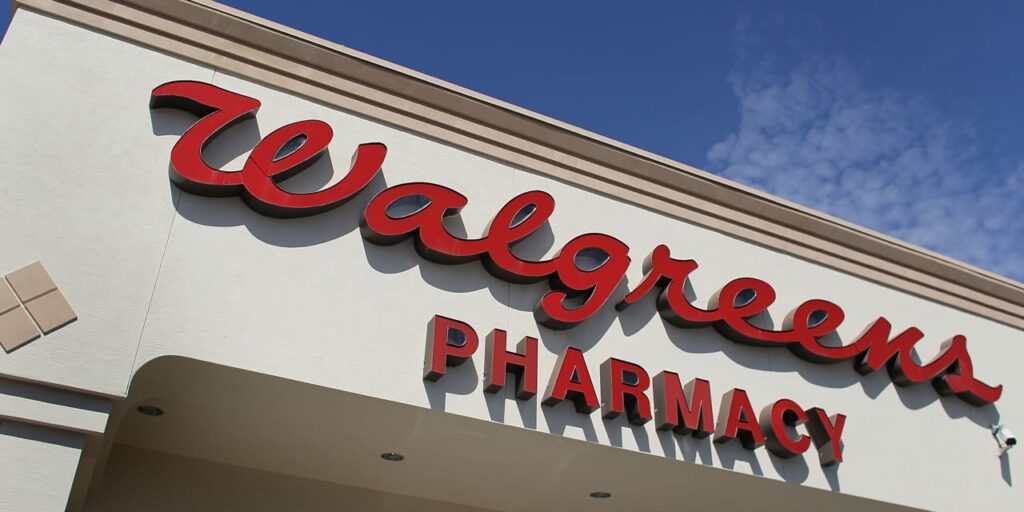There’s still plenty of yield in the stock market even with the recent rally that has resulted in a 19% year-to-date gain in the
S&P 500
this year.
Plenty of stocks have been left behind and many carry outsize yields of 6% or more—including a total of about 40 in the S&P 500 and
S&P MidCap 400
indexes, according to data from S&P Dow Jones Indices.
Barron’s screened for an even higher yield of 7% in the S&P 500 and came up with a half dozen companies:
Altria,
Walgreens Boots Alliance,
Boston Properties,
Healthpeak Properties,
Verizon Communications
and
KeyCorp.
The share prices of all six are in the red this year, and they trade for 10 times projected 2023 earnings are or less. For Boston Properties and Healthpeak Properties, we are using funds from operations, a cash-flow measure used by real estate investment trusts, rather than earnings per share, which is lower for both companies.
Altria and Walgreens top the list with 9.5% dividend yields and the other four are in the 7% range.
Altria, whose shares are down about 5% this year to $41, has been depressed by concerns about outsize declines in cigarette volumes, which hit 10% in the third quarter, compared with historical annual drops in the 4% to 5% range.
After the third-quarter profit report in August, Goldman Sachs analyst Bonnie Herzog wrote that there are growing worries about Altria’s ability “to offset accelerating cig volume declines with pricing, resulting in potentially more limited profit/EPS upside.”
Affordability is an issue with a pack of Marlboros costing an average of $9 nationwide and a demographic that skews toward lower-income customers. Herzog remains bullish, arguing Altria’s yield and valuation are attractive.
Altria sees earnings of about $4.95 a share this year, up 2% versus 2022.
Few big companies are as committed to their dividends as Altria. It has raised the payout annually for more than 50 years including a 4% boost to a quarterly rate of 98 cents per share in August. It pays out about 80% of its earnings in dividends.
Walgreens has had a horrid year. Its stock is down almost 50% to $20, making it by far the worst component of the Dow Jones Industrial Average.
The company has sharply cut earnings guidance since the start of year and the 2024 fiscal year consensus (ending in August 2024) now stands around $3.35 a share, down from nearly $5 a share at the start of 2023. It replaced its CEO, was hit by a drop in Covid-related sales, and faces doubts about the success of its strategy of diversifying into medical practices.
JP Morgan analyst Lisa Gill upgraded Walgreens to Overweight from Neutral in late October—making her one of the few Street analysts with a Buy on the stock. She likes the company’s new CEO, Tim Wentworth, a veteran healthcare executive who came out of retirement to head the drugstore chain. She cited a “healthcare focused management team” and a “lowered but credible bar” for financial performance in the current fiscal year.
Is the dividend safe? Gill wrote her discussions “lead us to believe that investors broadly anticipate a cut.” Walgreens said on its conference call in October that “at this point,” the board has made no change in its dividend policy. Given expectations of a reduction, an actual cut might not have much impact on the stock.
Verizon Communications has rallied 20% off its October lows to $37 after the company’s third-quarter earnings report offered some reassurance on the company’s competitive position in the wireless business. Verizon stock yields about 7%.
While the high yield indicates some investor concern about the dividend sustainability, the company boosted the quarterly dividend by about a penny to 66.5 cents a share during the summer, the 17th year in a row of payout boosts.
On its earnings conference call in July, CEO Hans Vestberg said: “Our dividend coverage is very healthy. Year to date, our free cash flow dividend payout ratio is approximately 56%, a significant improvement from a year ago.”
KeyCorp has been hit along with other regional bank stocks this year, but it gained more than 25% off its lows to around $12. KBW analyst David Konrad upgraded the stock to Outperform from Market Perform in early November, citing a drop in long-term rates and “thus improved visibility on capital.” He has a price target of $15.
Konrad did note that KeyCorp has an elevated dividend payout ratio of about 70% and a lower capital ratio than other regional banks. The company left its quarterly payout unchanged at 20.5 cents in a dividend declaration earlier in November.
Boston Properties is one of the leading office REITs with buildings in key markets like New York, Boston and San Francisco.
Its stock has been depressed due to worries about tough industry conditions. In conjunction with its third-quarter earnings release, it essentially maintained its 2023 guidance on funds from operations.
On its conference call, its CEO Owen Thomas said that “despite strong negative market sentiment, BXP had another productive quarter with financial performance and leasing above expectations and a stable dividend.” The stock at a recent $54 yields over 7%,
Healthpeak, another REIT, leases office space to doctors’ practices and lab space to biotech and other drug companies. The company has a deal to merge with Physician Realty Trust.
In conjunction with the announcement of that transaction earlier in November, the company’s CEO Scott
Brinker
said it plans to maintain its $1.20 annual dividend, which provides a yield of about 7% at a recent price of $16.75.
Brinker said the deal would unite two complementary companies and be accretive financially.
Write to Andrew Bary at andrew.bary@barrons.com
Read the full article here

